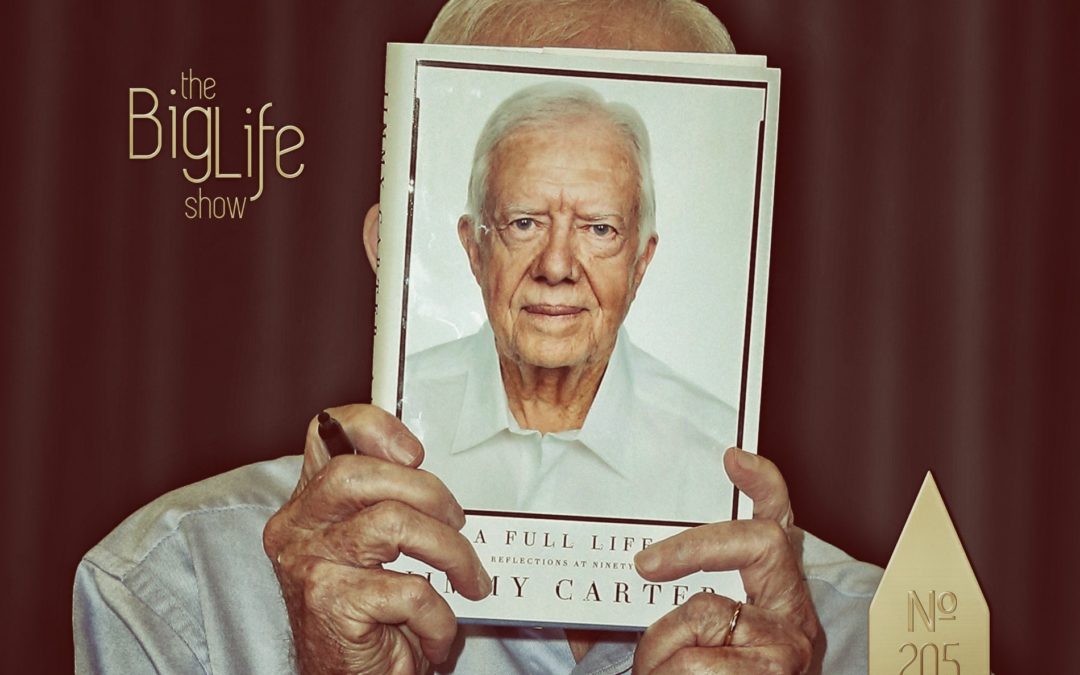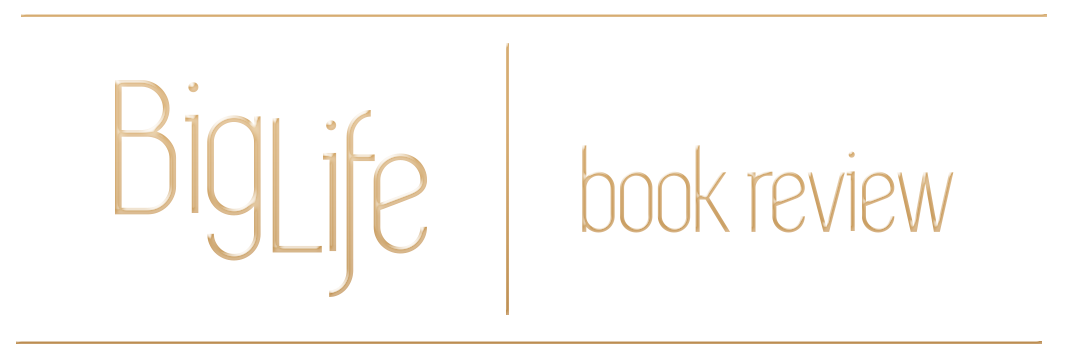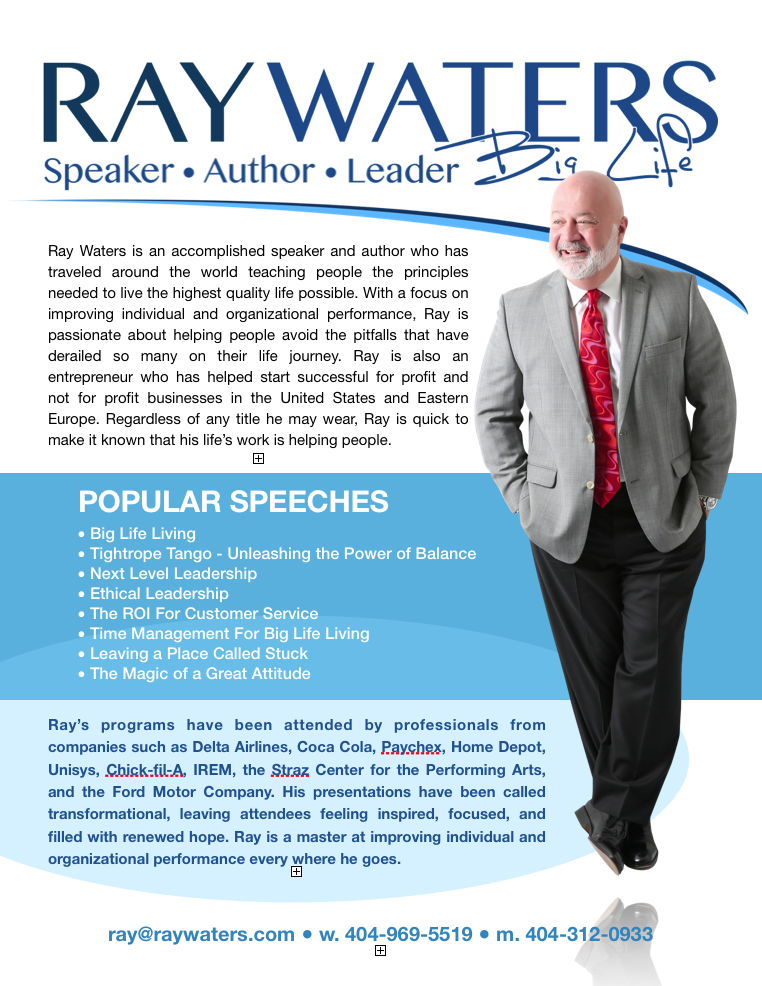Big Life № 2.05 | Overcoming Conflict & Meeting Jimmy Carter
Some people seem to live for conflict, but relatively normal, emotionally healthy people don’t enjoy it. That notwithstanding, we all have to deal with conflict from time to time in life.
The first step in moving through conflict to get to the other side is that one side has to make a decision to make the first move. It doesn’t matter if it’s your fault. If you want to get through it, decide to make the move first.
It’s important to be prepared. We talk about Gene Griessman on the show a lot because he’s a wise influence in our lives. Dr. Griessman recommends writing out what he’s going to say before the phone call or meeting because that helps us think through our words and our perspective on a more engaged level. If we casually approach the situation, it is easy to make a situation worse.
Even if the conflict isn’t of your own making, one key element of reaching resolution is for you to be willing to own your portion of the conflict. Take responsibility for any actions or words that escalated the conflict instead of moving it toward resolution.
If you make the conversation about how the other person or people have wronged you, you may have a cathartic conversation, but ultimately that strategy will make it worse before it has a chance to get better.
The most important ingredient in conflict resolution is so obvious, but often it’s the hardest thing to do. We have to listen carefully and with empathy to the other person’s side. When they feel heard and understood, rigid positions begin to soften.
Rather than putting up a fence, let’s talk to the people on the other side. When we do, everything starts to get better.
Truth matters a lot, but it matters far less than kindness. On the other side of resolution, who was to blame matters least of all.
A few weeks ago, we had a #BigLifeBucketList Experience. We got up at four in the morning to drive two hours before daylight to get in line to see President Jimmy Carter teach Sunday School. It was a fun, beautiful experience that Ray wrote about on the Big Life blog.
We both were conservatives in our younger years, but with life experiences, we’ve both grown far more liberal, which is kind of a key factor in how we connected and started working together.
After attending Jimmy Carter’s Sunday School Class, we decided we wanted to read one of his books, and the one we picked is, A Full Life: Reflections at 90.
It’s kind of weird and woo-woo how things just seem to be in the air. At the same time we read the book, Bill Gates read it too, and he wrote a review on his blog.
I would never have guessed I’d get a lesson about the power of intention from Jimmy Carter, but it’s right there in the introduction of A Full Life:
“I saw the presidency as a way to accomplish specific goals that I considered important, decided four years in advance to be elected, and my entire family joined in the all-out campaign.”
I was aware of the highlights of Jimmy Carter’s life, but I didn’t know how the pieces of his background as a peanut farmer, a nuclear engineer, and former governor fit together.
When he was five-years-old Jimmy picked peanuts, boiled them, bagged them up and made more money selling them than grown men made working in the fields all day long.
After high school, he attended the Naval Academy and joined the Navy where he worked as a nuclear engineer who was an influential part of designing the energy sources that powered the first nuclear submarines.
After his father died, much to the disappointment of Rosalynn, he decided to leave the Navy and return home to Pains, Georgia to run his family’s peanut farm.
In his early marriage, he was a typical man of is era. He didn’t regard his wife as an equal partner his decision making. He made the decision to leave the Navy and to run for state Senate without ever talking to Rosalynn.
His heart began to change when running for Senate when Roselyn volunteered to run the farm business and he recognized she was really good at it.
Later in life, Carter renounced his association with the Southern Baptists because of his beliefs in feminism and equal rights.
I was shocked to discover Jimmy Carter is a gadget geek!
He studied electronics throughout his whole life, and because of his job in the Navy and later his roles in government, he’s always had access to know about cutting edge technology before most people knew anything about devices that would eventually become common in popular culture.
He’s also a painter and a poet. The book includes a number of his poems and images of his paintings. He learned to paint during his time at the Naval Academy after a fellow student ordered a painting kit and left school before it was delivered.
One of the reasons we’ve learned from life is how you can have an almost entirely artificial impression of a politician if you experience them primarily through media filters rather than through what they actually do and say. One of my biggest regrets is that I lived a large portion of my life with a false sense of who Jimmy Carter is. The more I experience him without political filters, the more I respect him and want to be more like him.
Now when I look back on his presidency, I think about it the way he does. He writes, “I look back on those four years with peace and satisfaction, knowing that I did my best and had some notable accomplishments. Vice President Mondale summarized our administration by saying, ‘We told the truth, we obeyed the law, we kept the peace.’ I would add, ‘We championed human rights.'”







